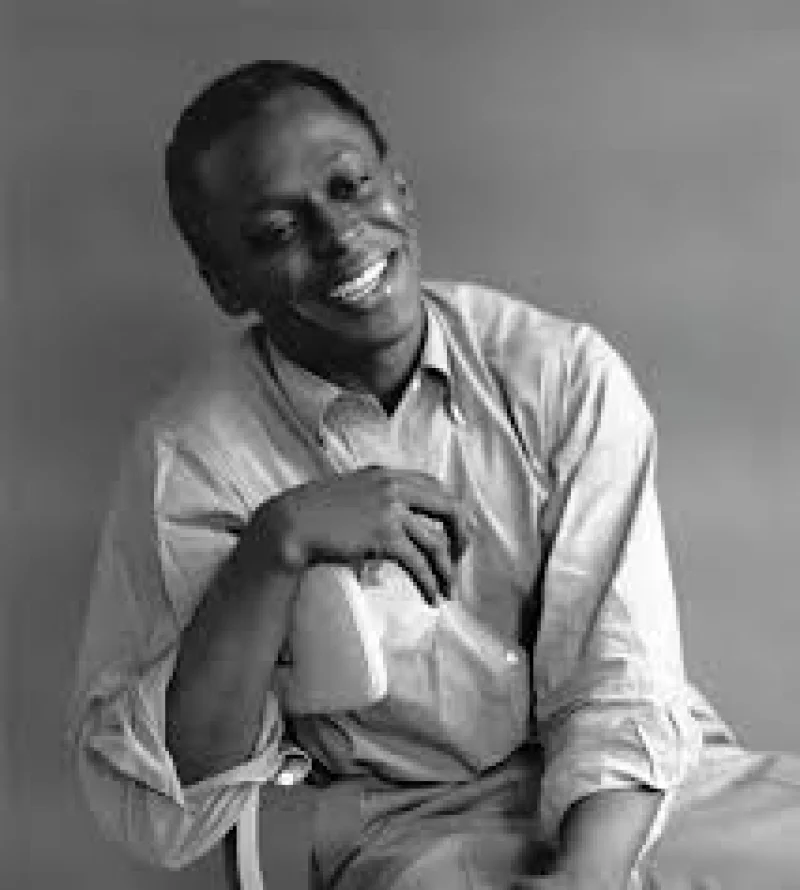Short Summary
Miles Davis was an iconic American jazz trumpeter, composer, and bandleader who significantly influenced the development of jazz music. He is celebrated for his pioneering work in various jazz styles, including bebop, cool jazz, hard bop, and jazz fusion. Over his five-decade career, he released numerous critically acclaimed albums and earned a reputation as one of the most innovative and influential musicians of the 20th century. His ability to continually evolve and adapt his music ensured his enduring legacy in the world of jazz and beyond.
Early Life & Education
Miles Dewey Davis III was born on May 26, 1926, in Alton, Illinois, into a middle-class African American family. His father was a successful dentist, and his mother was a music teacher. The family later moved to East St. Louis, where Davis began his musical journey. He received his first trumpet at the age of 13 and was soon taking lessons from a local musician named Elwood Buchanan, who emphasized a clear, vibrato-free tone. In 1944, he moved to New York City to attend the Juilliard School of Music, though he soon became more involved in the vibrant jazz scene of the city, working with established musicians like Charlie Parker and Dizzy Gillespie.
Career Highlights
Throughout his career, Davis was at the forefront of nearly every major development in jazz. In the late 1940s, he played a key role in the birth of cool jazz. His 1959 album "Kind of Blue" is a landmark recording, often cited as the best-selling jazz album of all time. In the 1960s, he formed the Second Great Quintet, which pushed the boundaries of jazz further. The late 1960s and early 1970s saw him pioneering jazz fusion with albums like "Bitches Brew," which blended jazz with rock and funk elements. His ability to reinvent himself and his music kept him relevant and influential until his death in 1991.
Major Achievements
- Released "Kind of Blue," the best-selling jazz album, which is a cornerstone of jazz music.
- Pioneered jazz fusion with the groundbreaking album "Bitches Brew" in 1970.
- Inducted into the Rock and Roll Hall of Fame in 2006, highlighting his influence beyond jazz.
- Won eight Grammy Awards, including a Lifetime Achievement Award in 1990.
Famous Quotes
- "Do not fear mistakes. There are none."
- "It's not the notes you play, it's the notes you don't play."
Interesting Facts
- Miles Davis was inducted into the Rock and Roll Hall of Fame in 2006.
- He is credited with discovering and nurturing the careers of many other jazz legends, including John Coltrane and Herbie Hancock.
- Davis was known for his distinctive style, often turning his back to the audience while performing.
Legacy / Influence
Miles Davis's legacy is profound, as he continually pushed the boundaries of jazz, influencing countless musicians across various genres. His innovative approach to music and his ability to adapt to changing musical landscapes ensured his status as a pivotal figure in 20th-century music. Davis's work laid the groundwork for future generations of jazz musicians and continues to inspire artists in multiple genres worldwide.
FAQ
Q: Why is Miles Davis famous?
A: He is famous for being a pioneering jazz trumpeter and composer who influenced various jazz styles.
Q: What is "Kind of Blue"?
A: "Kind of Blue" is a landmark jazz album released by Miles Davis in 1959, known for its modal jazz innovations.
Q: What is jazz fusion?
A: Jazz fusion is a genre that blends jazz with rock, funk, and other styles, which Miles Davis helped popularize.
Q: When did Miles Davis pass away?
A: He passed away on September 28, 1991.











